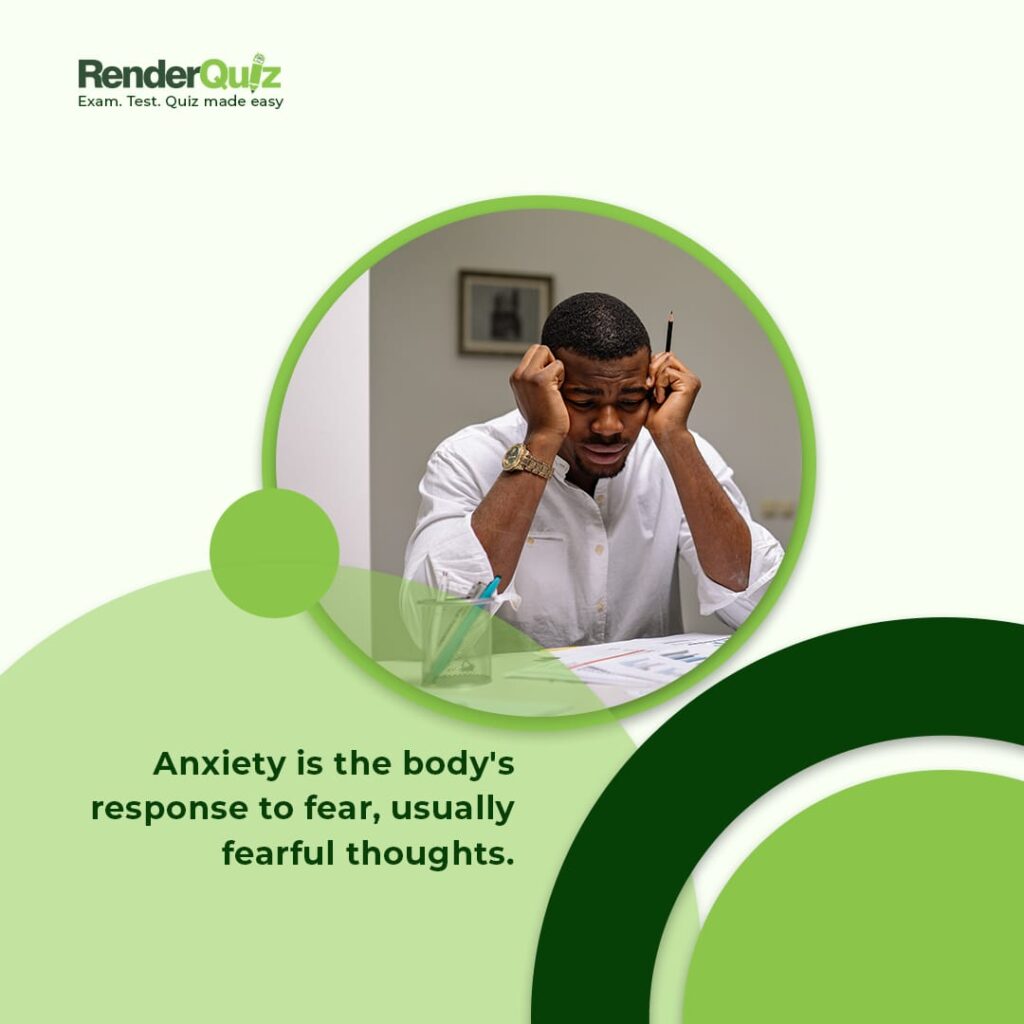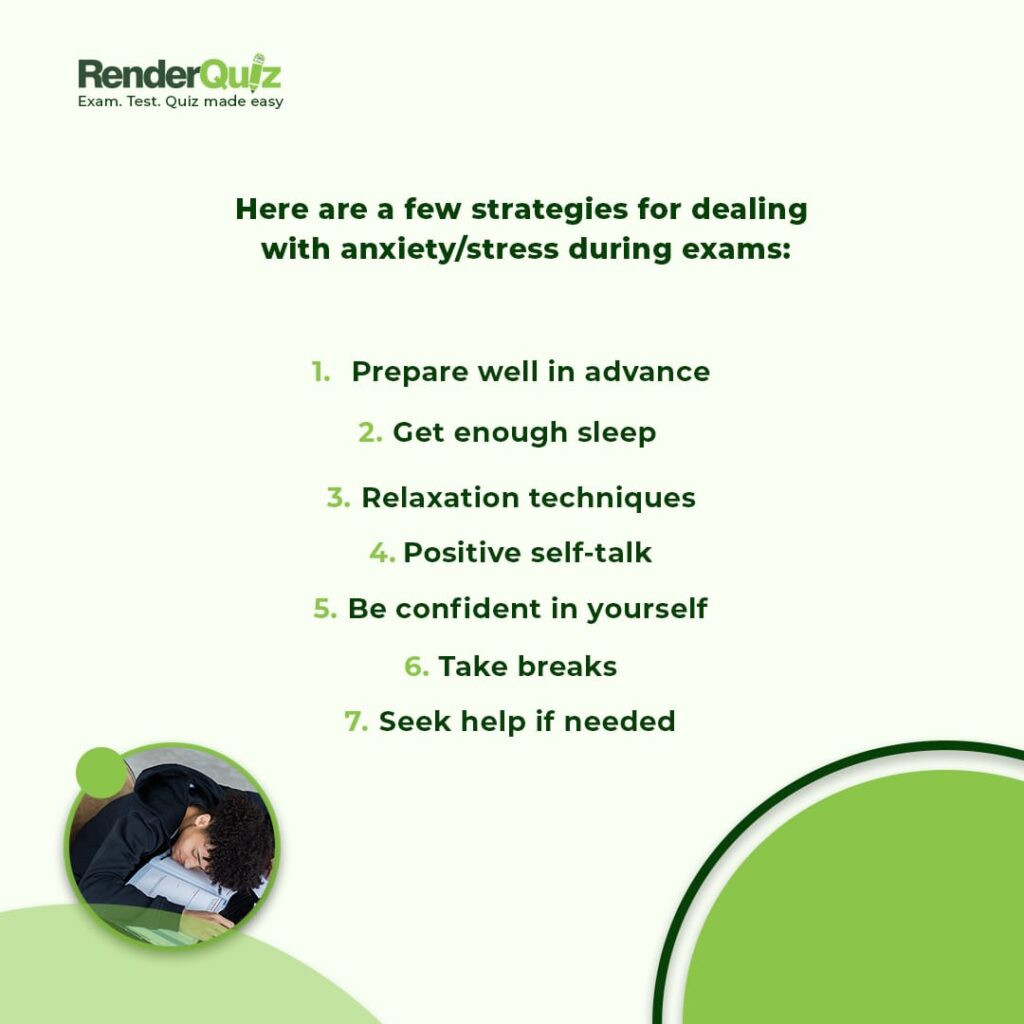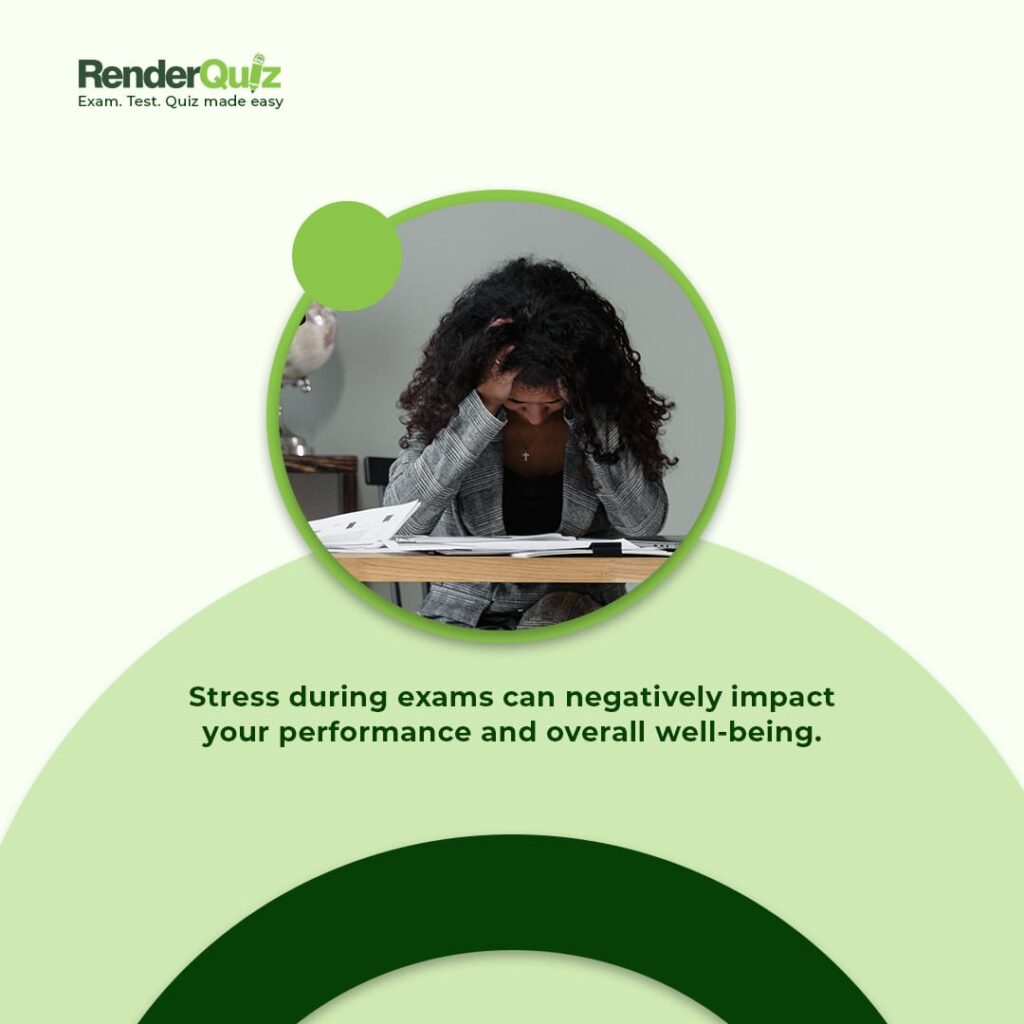Anxiety is a normal and sometimes positive feeling but could develop into a medical disorder if a person experiences excessive anxiety regularly. Anxiety disorder can cause mental health issues, leading to extreme nervousness, fear, apprehension, and worry.

These disorders impact how a person behaves and processes emotions, which results in physical symptoms. Treatment for anxiety disorders typically involves a combination of therapy, medication, and lifestyle changes.
Exam anxiety
Exam anxiety is a feeling of nervousness or fear that can occur before or during an exam. It can manifest in physical symptoms such as sweating, shaking, and a racing heart, as well as mental symptoms such as difficulty concentrating and negative thoughts about one’s abilities. Exam anxiety is a common experience and can be managed with various techniques.
Reducing exam stress or nervousness involves implementing strategies to manage anxiety and tension related to what you are studying for and taking exams. This is important because it can help improve focus and concentration, leading to better performance on the exam.
Anxiety can also cause physical symptoms such as headaches and stomachaches, further distracting and impeding performance. Additionally, chronic stress can take a toll on one’s mental and emotional well-being. By reducing anxiety, individuals can perform better, feel more confident and have a better overall experience during exam season.

Here are a few strategies for dealing with anxiety/stress during exams:
- Prepare well in advance: Make a study schedule and stick to it to ensure that you are well-prepared for the exam.
- Get enough sleep: Get a good night’s sleep before the exam to help your brain function at its best.
- Relaxation techniques: To reduce anxiety, try relaxing exercises like yoga, meditation, or deep breathing to help calm your nerves.
- Positive self-talk: Use positive self-talk to counteract any negative thoughts you may have about the exam.
- Be confident in yourself: Believe in your abilities and remind yourself that you have prepared well for the exam.
- Take breaks: If you feel overwhelmed during the exam, take a short break to clear your mind and then return to the exam refreshed.
- Seek help if needed: If your anxiety affects your ability to take exams, consider seeking help from a counsellor or therapist.
Anxiety is the body’s response to fear, usually fearful thoughts. To reduce anxiety, it is necessary to slow the body’s response down through controlled breathing and focus the mind on peaceful thoughts.
Breathing exercise
Repeat these steps every day to develop the habit:
I. Breathe in through your nose for 4 seconds, expanding your stomach as you do.
II. Hold your breath for 4 seconds.
III. Breathe out through your mouth for 4 seconds.
IV. While practising breathing exercises, focus your mind on the sensation of the air going in and out of your body, noticing how your stomach expands and contracts.
There are several other activities that can help reduce anxiety during exams, such as:
- Practising deep breathing and meditation techniques to calm the mind.
- Engaging in physical activity, such as walking or running, releases tension and increases endorphins.
- Creating a study schedule and breaking up study sessions to avoid feeling overwhelmed.
- Staying organized and ensuring you have all the necessary materials for the exam.
- Talking to someone about your worries and getting support.
- Others include: listening to music, dancing, singing, reading a non-course related book, cooking, watching your favourite TV show, drawing or other creative hobbies, playing with a pet, doing a home workout, gardening, talking with friends etc.
Remember that stress during exams can negatively impact your performance and overall well-being.
High-stress levels can cause anxiety, fatigue, and difficulty concentrating, all of which can make it harder for you to do well on exams. Additionally, stress can take a toll on your physical and mental health, leading to headaches, stomach problems, and other symptoms.

In summary, develop a study schedule, break down the material into manageable chunks, practice self-care, get enough sleep and exercise, take deep breaths, meditate, visualize and talk to a counsellor or therapist to help manage exam stress.
Implementing these strategies can reduce anxiety/stress during exams, perform at your best, have a better overall experience, and maintain mental and physical health.